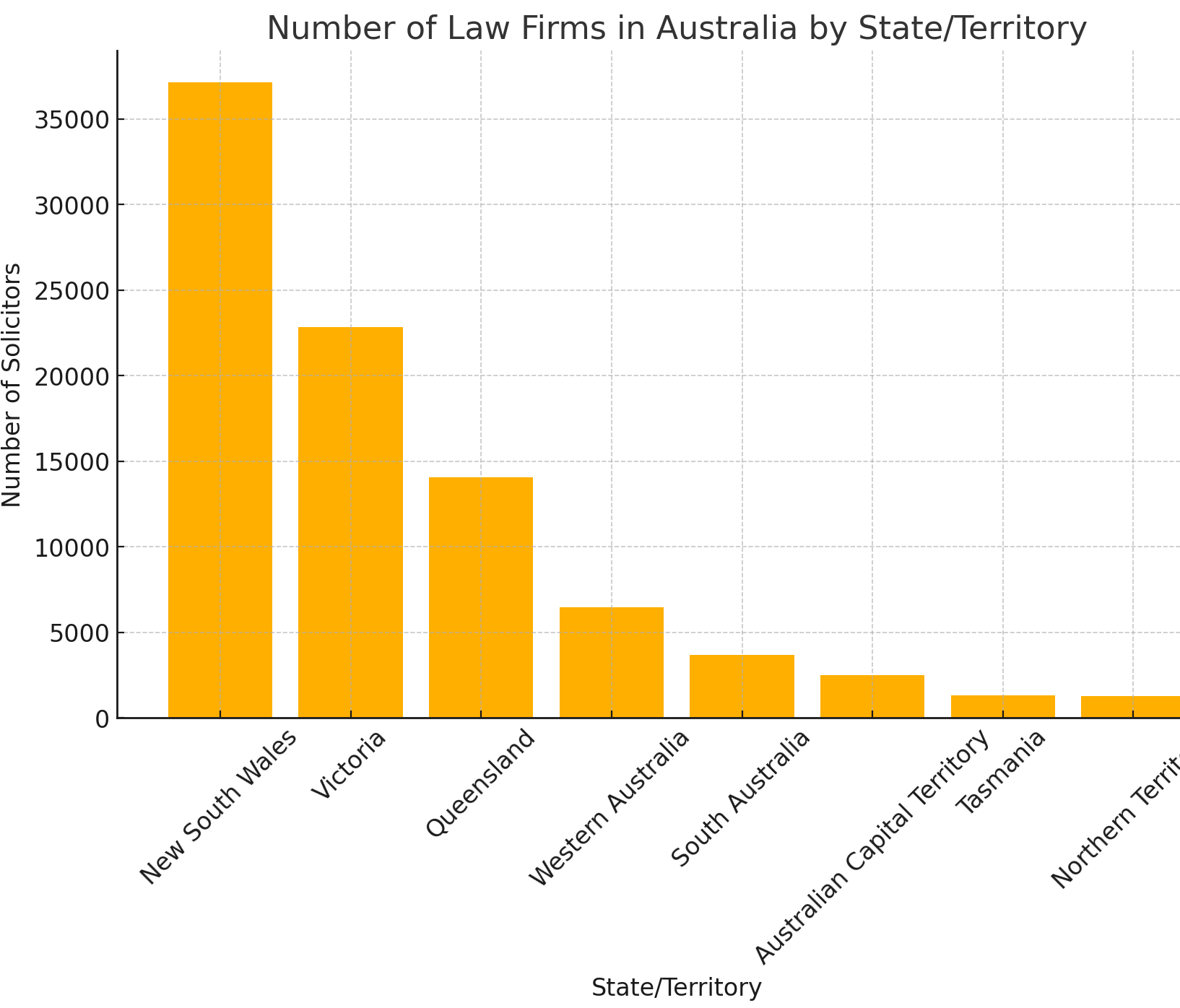Melbourne Lawyers are experiencing a healthy market that has been growing significantly in recent years in line with Australian lawyers in general. As of October 2022, Australia had 16,514 private law practices, distributed across its states and territories as follows:
| Jurisdiction | Number of Solicitors | Percentage of Total Solicitors |
|---|---|---|
| New South Wales | 37,142 | 41.1% |
| Victoria | 22,849 | 25.3% |
| Queensland | 14,086 | 15.6% |
| Western Australia | 6,482 | 7.2% |
| South Australia | 3,669 | 4.1% |
| Australian Capital Territory | 2,482 | 2.7% |
| Tasmania | 1,334 | 1.5% |
| Northern Territory | 1,285 | 1.4% |
| Total | 89,329 | 100% |
This data indicates that the majority of law practices are concentrated in New South Wales and Victoria, reflecting their larger populations and economic activities. The distribution of law firms generally aligns with the population distribution across Australia’s states and territories
Most of the legal practices are in New South Wales, although a fair few remain in Victoria. Some of the legal practices are national, and practice in both New South Wales and Victoria
The Big-tier national law firms in Melbourne are massive in scope and cater primarily to large corporations, government agencies, and financial institutions, handling complex, high-value matters in areas like mergers and acquisitions, banking, and competition law. These firms have vast resources, extensive support staff, and highly structured career paths, but are also known for demanding long hours and high billable targets.
Mid-tier firms are still quite large. They operate at a more national or regional level, servicing a mix of corporate clients, government entities, and high-net-worth individuals. They often have strong reputations in specific practice areas such as commercial litigation, employment law, or property law. While the workload can still be demanding, mid-tier firms tend to have slightly more flexible working arrangements than their big-tier counterparts. They compete with larger firms on price and personalized service, often attracting lawyers who want high-quality work but prefer a better work-life balance than what is typically found in big law.
Boutique firms, on the other hand, are typically smaller, highly specialized practices that focus on niche areas such as family law, criminal law, intellectual property, or insolvency. Nonetheless, some firms of Melbourne Lawyers are general practice and growing in a manner which will lead to them becoming mid-tier firms. These firms often pride themselves on close client relationships and a more hands-on approach, with senior lawyers actively involved in casework rather than delegating to junior associates. Without the pressure of enormous billable targets, boutique firms can offer a more balanced work environment, but they may lack the resources and international reach of larger firms. Their success often depends on deep expertise, reputation, and strong networks rather than sheer size.

Leave a Reply